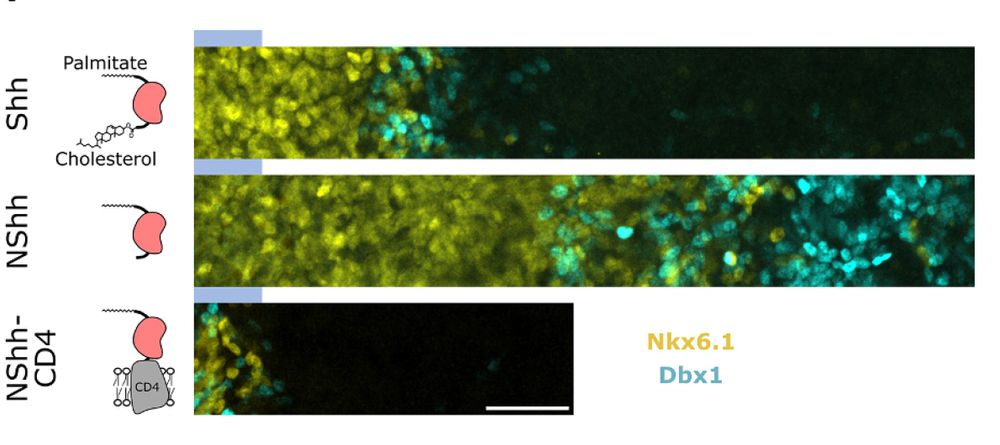We applied DD-GAVPO to control Sonic hedgehog (Shh) production in a stem cell model of neural tube development Spatially restricted light illumination recreated long-range Shh gradients that faithfully recapitulated neural tube patterning
Replies
Key finding #1: Shh has an extracellular half-life ~1h. Turnover much faster than downstream gene expression dynamics, indicating morphogen gradient is continually renewed during patterning Suggests Shh's effective diffusion rate: ~0.125 μm²/s, remarkably similar to Dpp/Wingless in Drosophila
Key finding #2: Cholesterol-modified Shh showed normal patterning, while non-cholesterol modified Shh (NShh) extended signalling range 3-fold Membrane-tethered Shh-CD4 abolished long-range signalling
Similarly, the Shh interacting protein Scube2 increased Shh range by ~50%, confirming its role as a "gradient expander" in mammalian systems (previously shown in zebrafish) The system provides a quantitative readout for morphogen modulator activity
Key finding #3: Dynamic xpts revealed progenitor identity depends on both concentration & duration of Shh More ventral markers (Nkx2.2) appear later but domain sizes remain constant This suggests progressive fate assignment reflects gene regulatory dynamics, not gradient dynamics
Is this why having a floor plate is important? (as opposed to only rely on the notochord -who will eventually disappear/turn into something else- to secrete the ligand)(naïve question)
Bottom line: DD-GAVPO represents a powerful tool for precise gene control. We used it to generate quantitative measurements of a mammalian morphogen but it is versatile and could be used in a wide range of applications All credit to @dbenzinger.bsky.social who conceived & implemented the project.





